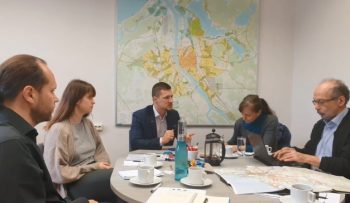
ESPON MISTA – Metropolitan Industrial Spatial Strategies & Economic Sprawl
Duration: October 2019-December 2020
Contracting party: ESPON EGTC
MRI, in cooperation with Politecnico Milano, WIFO – Austrian Institute of Economic Research and Latitude carried out a series of studies on the metropolitan dimensions of urban manufacturing (ESPON MISTA).

The study was organised around the role of manufacturing in urban areas of Europe with special attention to the forseen challenges of the 4th industrial revolution and the specific sectors of manufacturing in different urban areas that ensure the satisfacton of local needs but keeps the competitive position of cities at the same time. In order to reach these goals the research concentrated on finding the proper coordination mechanisms on metropolitan scale in the framework of fragmented governance systems.
The study evaluated the general trends in the manufacturing sector (decreasing labour force but increasing added value) in and around urban centres and analyses the spatial dynamics of different segments of manufacturing moving out from urban cores. The study also aimed to identify the possibilities for cooperation through which a more optimal division of manufacturing capacities can be achieved on a metropolitan scale based on the cases of Berlin, Oslo, Riga, Stuttgart, Turin, Vienna and Warsaw.
The study concluded that to a certain extent the division of roles in manufacturing between the city cores and their agglomeration is natural: having high added value activities inside cores where land prices are high, while locating manufacturing activities with high land use and transportation needs outside cities. However, this natural phenomenon tends to be harmful in cases where it generates additional transportation flows of goods and people, emptying out the city cores of basic manufacturing activities which provided jobs and sustained services. Thus, stronger interventions by public actors are needed not only on the level of the city but rather across whole urban functional areas to influence locational decisions of individual companies.
Besides analysing the general trends in manufacturing and evaluating the local situation in seven metropolitan areas the project developed a detailed description of inspirational cases that are providing guidelines for a more efficient local manufacturing policy.
All the final outcome of the project can be found at https://www.espon.eu/mista